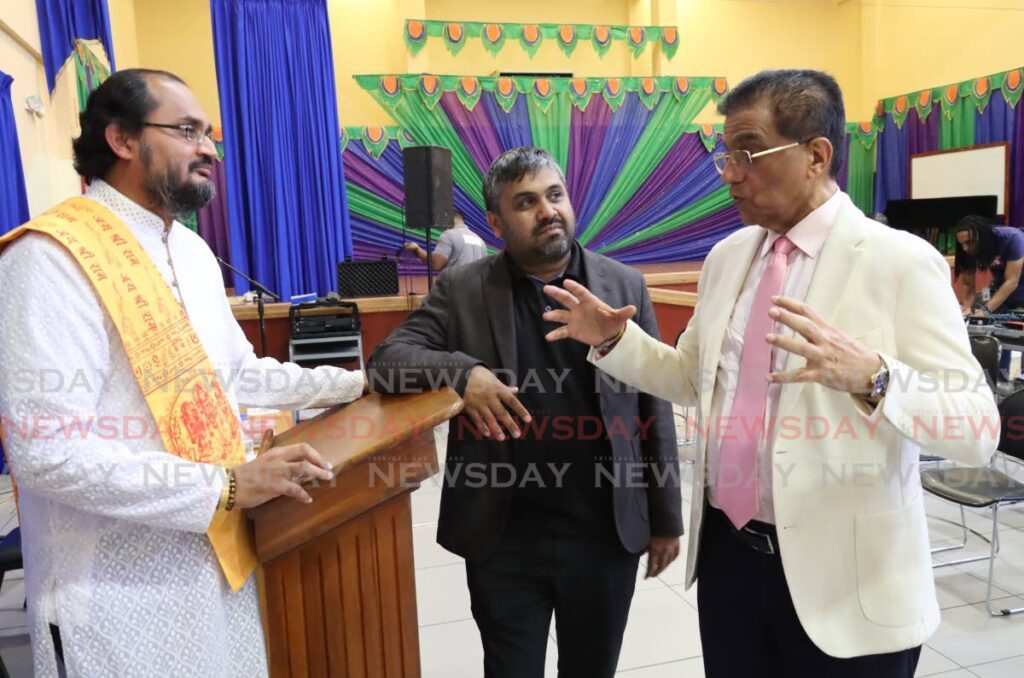Ramesh: Privy Council changed definition of seditious offences

A significant outcome of the recent appeal against the constitutionality of the colonial-age sedition law is that the Judicial Committee of the Privy Council changed the definition of seditious offences by requiring evidence of intent to cause violence or public disturbance.
This from former attorney general Ramesh Lawrence Maharaj SC at a media conference on Saturday at the Sanatan Dharma Maha Sabha (SDMS) headquarters in St Augustine.
"The contention that the offence was exhaustively defined by the definition in the act was therefore rejected," Maharaj said.
"It is the law as in India and Canada the offence of sedition in the act must be read subject to the common law qualification of having proof of incitement to violence or public disorder."
Maharaj led the legal team that represented Vijay Maharaj and Central Broadcasting Services Ltd (CBSL). Earlier this month, the court ruled in favour of the State as it upheld the constitutionality of the pre-independence legislation.
Maharaj said he wanted to explain the importance of the judgment as the Privy Council did not grant the SDMS constitutional law reliefs they requested. The SDMS asked for the relief of a declaration that the impugned sections of the Sedition Act were unconstitutional.
Maharaj and his team contended that the act was vague and incomplete and gave the police too much power. They also wanted the act to be amended.
The attorneyj paid tribute to Vijay's father, the late SDMS secretary general Satnarayan "Sat" Maharaj and CBSL for the claim they filed against the State challenging the sedition legislation after the police search of his company's premises in 2019.
Maharaj charged that the police unlawfully seized the tape which recorded the statements Satnarayn made on his call-in programme on Radio and TV Jaagriti, "The Maha Sabha Strikes Back."
Maharaj, 88, who died in November 2019, described Tobagonians on his programme as lazy people, more interested in racing crabs and goats and targeting white women to rob and rape them. No criminal charges were laid against him.
Vijay was allowed to continue the case after his father's death.
Maharaj recalled that the police claimed that based on the statements Satnarayan made on the programme they had reasonable cause to believe he committed the offence of sedition.
For that reason, the officers searched the company's premises to get the records to try to support the allegations.
Maharaj said although people might have disagreed with Satnarayan's comments, it did not constitute sedition.
"But the most important part of this development of the law is that if the police want to use this sedition law, they cannot only satisfy themselves as to what is in the statute in black and white," Maharaj said.
"They also have to satisfy the intention to cause violence or public disorder. If they can't satisfy that, they would not have a warrant. They would not have a prosecution. It is not to say that the Privy Council recommends that Parliament does something."
He added that the courts of this country have the common law power, not statutory power, in interpreting a statute.
"What the Privy Council said was, we cannot give you relief because your constitution says an existing law cannot be challenged. We cannot give me relief, because you are challenging the existing law under sections four and five, and section one of the constitution does not permit you to do that," Maharaj said.
"But what we can do is give you common law relief. You cannot have a sedition offence without having the intention to cause violence."
Maharaj recalled that it was under the same law that the British used to prosecute and jail civil rights activist Mahatma Gandhi in India because he was fighting for independence.
"Since the sedition laws were introduced in England in the 1600s, for over 400 years, there have been countries in the Commonwealth fighting to change that law," Maharaj said.
"Some countries did not appeal the law, but had it amended for the law to read that you had to give the intention to incite violence, cause public disorder for the law to be good law."


Comments
"Ramesh: Privy Council changed definition of seditious offences"